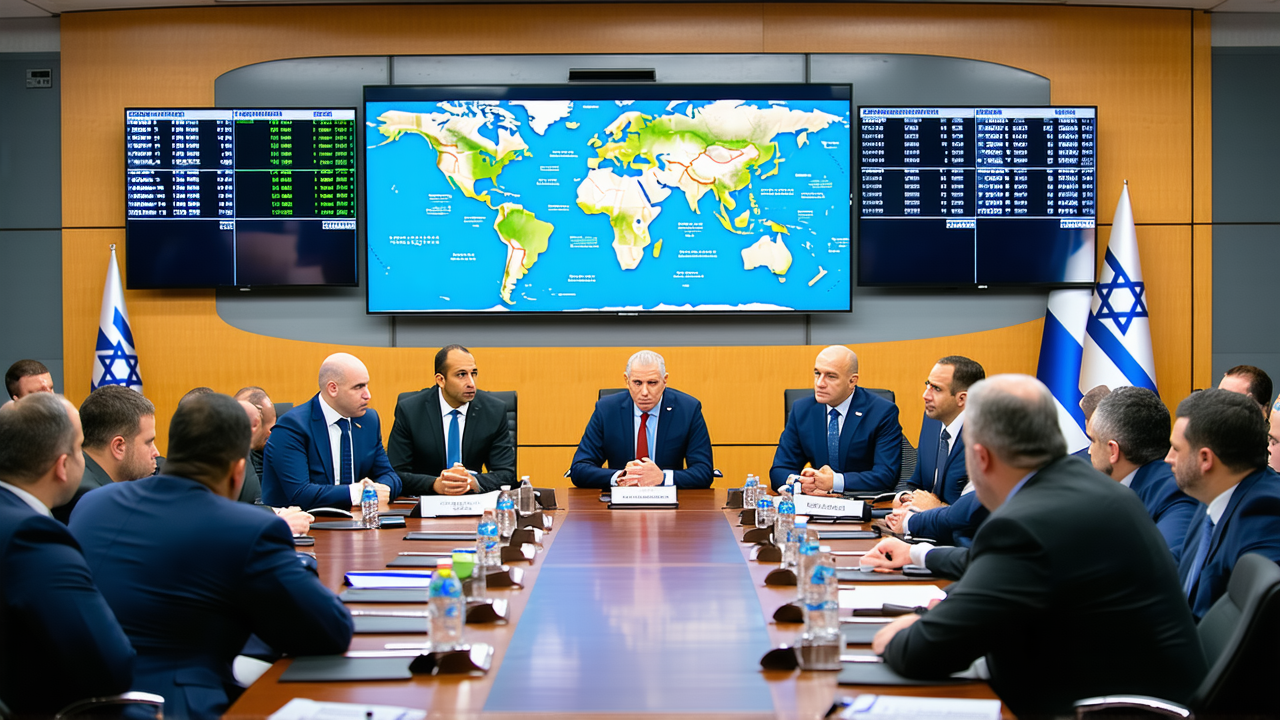Israel Considers Full Military Takeover of Gaza as Netanyahu Meets Security Officials
Israel Considers Full Military Takeover of Gaza as Netanyahu Meets Security Officials
Israeli Prime Minister Benjamin Netanyahu has convened senior security officials to finalize a new strategy for the ongoing 22-month conflict in Gaza, with reports suggesting he is leaning toward a complete military takeover of the region.
Despite mounting international pressure for a ceasefire to alleviate the dire humanitarian crisis in the Gaza Strip, efforts to mediate a truce between Israel and Hamas have collapsed. The situation has worsened, with eight more people in Gaza reportedly dying from starvation or malnutrition in the past 24 hours, and another 79 killed in the latest Israeli airstrikes.
According to Netanyahu's office, the prime minister held a three-hour meeting with military Chief of Staff Eyal Zamir, during which options for continuing the campaign in Gaza were discussed. Defence Minister Israel Katz and Strategic Affairs Minister Ron Dermer, a close confidant of Netanyahu, were also present at the meeting, which aimed to outline a strategy to be presented to the cabinet this week.
Israeli media, citing an official from Netanyahu's office, reported that the prime minister is considering taking full control of Gaza — a move that would reverse Israel's 2005 decision to withdraw from the territory, a choice that right-wing parties have long blamed for allowing Hamas to gain power in the region.
However, it remains unclear whether Netanyahu is envisioning a prolonged occupation or a short-term military operation aimed at dismantling Hamas and freeing Israeli hostages. The prime minister's office declined to comment on the media reports, stating only that the focus remains on defeating Hamas, freeing hostages, and ensuring Gaza no longer poses a threat to Israel.
On Saturday, Hamas released a video of Evyatar David, one of 50 remaining hostages still held in Gaza, showing him in a state of severe emaciation. The footage shocked Israelis and drew international condemnation. Israeli officials estimate that 20 of the 50 hostages are still alive, with most having been released during previous ceasefires.
A Palestinian official suggested that the reports of a full takeover of Gaza may be a pressure tactic aimed at forcing Hamas to make concessions. The Palestinian Foreign Ministry has urged the international community to take the reports seriously and intervene to prevent their implementation.
Israel's coalition government, the most right-wing and religiously conservative in its history, includes far-right politicians who advocate for the annexation of both Gaza and the West Bank and encourage Palestinians to leave their homeland. This has created growing tensions within the ruling coalition, as some members have expressed concerns over the military's ability to manage such a large-scale operation.
Far-right National Security Minister Itamar Ben Gvir challenged Eyal Zamir to confirm whether the military would comply with government directives even if a decision was made to take full control of Gaza.
Israel's military has faced significant strain over the past two years, with repeated mobilizations of reservists. The military has consistently opposed the idea of a full occupation of Gaza, highlighting the logistical and strategic challenges involved.
The war began when Hamas-led militants attacked Israel on 7 October 2023, killing around 1,200 people, mostly civilians, and capturing 251 hostages. Israel's military response has devastated Gaza, killing over 61,000 people — mostly civilians — according to Palestinian health authorities. The conflict has displaced nearly all of Gaza's 2 million residents, with reports of a growing humanitarian crisis, including a potential famine.
According to Gaza's health ministry, 188 Palestinians, including 94 children, have died from hunger since the war began. An Israeli security official acknowledged the possibility of hunger in some parts of Gaza but denied reports of a full-scale famine or starvation.
On Tuesday, Israeli tanks advanced into central Gaza, though it is unclear whether this move is part of a larger ground offensive. Palestinians in the last remaining quarter of the territory not yet under Israeli control expressed deep fear that any new incursion would be catastrophic.
Abu Jehad, a Gaza wood merchant, said, "If the tanks pushed through, where would we go, into the sea? This will be like a death sentence to the entire population."
As the situation continues to escalate, the international community faces mounting pressure to find a resolution to the crisis, with the humanitarian toll rising daily.
